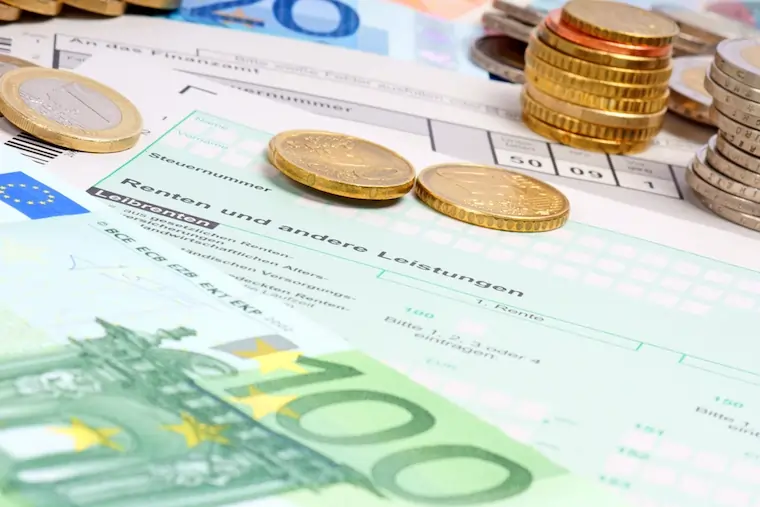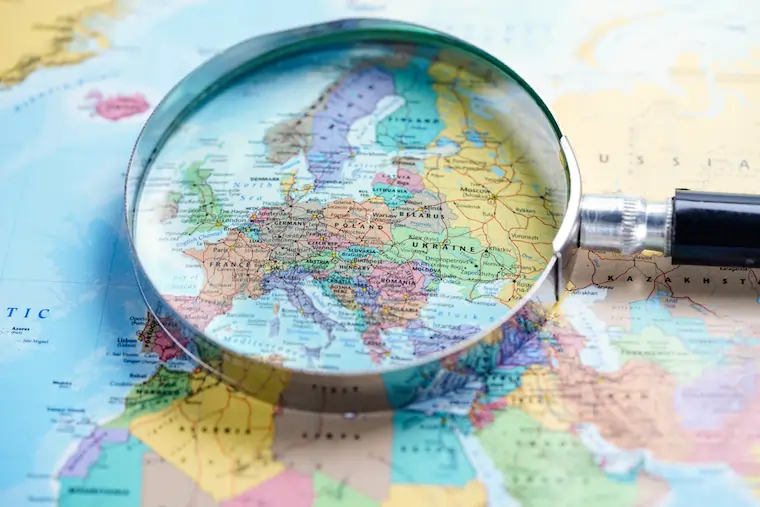If it seems like the list of non-AEOI countries is shrinking every year, that’s because it is. In just the last 12 months Georgia, Montenegro, Thailand, and more countries have agreed to start sharing information with tax authorities automatically and are now considered CRS countries.
That said, if you’re looking to open a bank account in one of the remaining non-AEOI countries, you still have several options to choose from. Below are some important key points to consider before attempting to open offshore accounts in non-AEOI countries.
Non-AEOI Countries:
Armenia, Benin, Bosnia and Herzegovina, Botswana, Burkina Faso, Cabo Verde, Cambodia, Cameroon, Chad, Côte d’Ivoire, Djibouti, Dominican Republic, Egypt, El Salvador, Eswatini, Gabon, Guatemala, Guinea, Guyana, Haiti, Honduras, Jamaica, Kenya, Lesotho, Liberia, Madagascar, Mali, Mauritania, Moldova, Mongolia, Namibia, Niger, North Macedonia, Palau, Papua New Guinea, Paraguay, Philippines, Rwanda, Senegal, Serbia, Tanzania, Togo, Tunisia, Uganda, Ukraine, Vietnam.
* Last updated by the OECD on October 18 2023
At first glance, you might be thinking that there are a few countries “missing” from the list above. In fact, there are a few countries that are no longer on this list that many internationalization gurus still like to tout as being “non-AEOI” or “non-CRS.”
The fact is, times are changing, and so is the list of countries that have not committed to the automatic exchange of information.
KEY TAKEAWAYS
- Opening accounts in non-AEOI countries doesn’t mean your banking information is safe
- Just because your country doesn’t participate in the automatic exchange of information right now, doesn’t mean it won’t share your information in other ways
- There are two main reasons why countries participate in the exchange of information
- The list of non-AEOI countries isn’t a hit list of the best offshore jurisdictions for banking in the world
As you’ll see below, some of the most popular non-AEOI countries have now committed to information sharing within the next few years. With this in mind, here are those countries that will begin AEOI in 2023, 2024, 2025, and 2026:
Non-AEOI Countries Scheduled to Participate:
2023 Participation: Jordan, Montenegro, Thailand
2024 Participation: Georgia, Kenya, Moldova, Tunisia, Ukraine
2025 Participation: Armenia, Morocco, Rwanda, Uganda
2026 Participation: Mongolia
If opening an account in one of these non-AEOI countries (or non-CRS compliant countries) is important to you, we recommend downloading your FREE copy of the CRS Mini Guide.
This guide provides a detailed overview of everything you need to know and gives some additional guidance on what to consider before opening accounts.
Feel free to use the table of contents to jump ahead to the sections most relevant to you.
Table of Contents
- Who Should Care About Non-AEOI Countries?
- Dangers of Over-Reliance on Non-AEOI Countries
- Why Do Countries Participate in AEOI?
- Should You Open Bank Accounts in Non-CRS Countries?
- Ready to Open an Offshore Bank Account?
Who Should Care About Non-AEOI Countries?

The hunt for non-AEOI countries isn’t a fringe topic only discussed by members of the underworld on secret message boards. Top international private banks and global accounting firms, like Julius Baer, Deloitte, and more, are actively engaged in the discussion as well.
And, this sudden thirst for knowledge is happening for good reason…
Understanding information sharing is a critical component of any internationalization strategy. From banking to taxation, knowing how, where, and with whom your information is being shared is important. And that’s why wealth managers, private bankers, and tax advisors are keeping themselves (and their clients) informed on this topic.
But you can’t always rely on advisors to make sure you’re compliant. After all, if you’re not compliant, it’s you that pays the penalty, not your advisors.
So it’s no surprise then that many people from around the world want to better understand the complexities of non-AEOI countries and CRS for themselves.
But understanding, and actually using this knowledge to your advantage, are two very different things…
Dangers of Over-Reliance on Non-AEOI Countries
Let’s get real for a second…
If you want to open accounts in non-AEOI countries because you think this will keep your account information safe and it won’t be sent to tax authorities in your home country or country of tax residence… you’re mistaken. This is a flawed strategy that can have very real consequences for you in the future.
Just because a country doesn’t participate in the automatic exchange of information right now, doesn’t mean that it won’t share your information in other ways, do so voluntarily, or sign up for AEOI in the future.
In fact, many countries that do not currently participate in AEOI already actively share information about individuals that hold accounts within their borders. Different procedures are simply followed.
We talk about this in greater detail in our FREE CRS guide.
For example, foreign countries can simply use a “John Doe” summons in the United States to obtain information about a specific group of foreign tax residents. The US is a non-CRS country. Yet, in 2019, the Finnish tax authorities used the US-Finland Tax Treaty and a “John Doe” summons in order to extract information about non-compliant Finnish taxpayers who were using the US banking system to avoid tax.
In other words, just because you have an account in one of the non-AEOI countries listed above, doesn’t mean your information isn’t ever going to be shared.
Also remember: your bank cannot alert you before they share your information with authorities. You already agreed to let the bank do that when you signed your account agreement. But also, when you agreed to their terms and conditions.
Why Do Countries Participate in AEOI?

There are two main reasons why countries participate in the exchange of information: increased tax revenue and economic stability.
Increased Tax Revenue
Some countries want to share information because they want to receive financial information about their own citizens and residents abroad.
In other words, some countries agree to AEOI because they want to identify non-compliant taxpayers. Tax authorities are motivated to uncover unreported bank accounts, investments, and other financial instruments that their tax residents hold abroad.
After all, when governments discover unreported assets via AEOI agreements, this means they can be taxed! And, that means more tax revenue! Plus, tax authorities also collect back taxes and issue penalties for all the years they did not collect.
For example, in 2019 nearly 100 countries carried out an automatic exchange of information. This allowed tax authorities to receive details on 84 million financial accounts held offshore by their residents. This resulted in tax authorities around the world uncovering billions in new tax revenue.
Economic Stability vs Non-AEOI Countries
Many countries have built very lucrative economies by taking the complete opposite approach to AEOI. Instead, they offer financial security and privacy within their borders.
But there’s a problem. Many of these non-AEOI countries have few other economic outputs which make them vulnerable. For example, their financial sectors represent a large portion (or even majority) of their GDP — and that’s a problem for two reasons:
- Countries with economies heavily reliant on banking & financial services can easily be bullied into submission (e.g. Andorra, Cayman Islands, Mauritius, Vanuatu, etc)
- Countries that are heavily reliant on foreign correspondent banking relationships (CBRs) to keep their financial sectors running — will be crushed if and when those CBRs are ever withdrawn.
For instance, if non-AEOI countries don’t have their own currency, they rely on international correspondent banks to transact in foreign currencies. Or, if the entire economy is dependent on the financial sector, the country can be easily bullied. This means that regulators are free to force the country to do (or adopt) whatever new measures they suggest.
We’ve seen this happen time and time again. Small Caribbean or Pacific island nations face the penalty for secrecy or poor compliance. This includes strict instructions on how to reform. Such demands get passed down by international regulators like FATF/GAFI, OECD, and more recently the EU or the US.
The Role That Banks Play in Non-AEOI or Non-CRS Countries
It’s not just regulators that take action against small banking jurisdictions… they also mobilize their foot soldiers, the correspondent banks.
Using the fear of losing international correspondent banking relationships (CBRs), the resulting economic shutdown that would follow, and the shock of losing access to international financial markets, regulators can basically force jurisdictions to do whatever they want.
This is a powerful tool that regulators are happy to employ, and it’s very effective. With the EU stepping up to play an even bigger role in recent years, we expect that such tactics will continue to shrink the list of non-AEOI countries at an even faster rate, which brings us to the most important section in this article…
Should You Open Bank Accounts in Non-CRS Countries?

The list of non-AEOI and non-CRS countries isn’t a hit list of the “best banking jurisdictions in the world.” In fact, in most cases, there are much better and more stable countries to bank in.
But, there are still valid reasons why you still might want to open an account in a non-AEOI country. Maybe you own a vacation property, own a business, or travel there regularly. Or, maybe you have suppliers or employees that you need to pay in a non-AEOI country. Or maybe you just want extra diversification for personal reasons.
Any of these examples explain why someone might want to open accounts in one of the non-AEOI countries listed above.
But, if your reason for wanting to open an account in one of these non-AEOI countries is to protect your personal information, increase your privacy, or participate in illegal activities… then chances are, your banking (and your privacy) is going to be short-lived.
Remember: there are countless ways to legally minimize taxes, increase privacy, protect assets, and mitigate risks today. So, relying on non-AEOI countries to do this for you makes little sense. At best, it’s a short-term strategy with enormous risks, both personally and financially.
As always, speak with a qualified advisor about what strategies are available to you based on your residency and citizenship. And when you’re ready to open bank accounts, let us know.
Whether you want to open an account in one of the non-AEOI countries listed above or a country that’s already signed up for AEOI, we’d be happy to help you get started.
Ready to Open an Offshore Bank Account?
If so, you can access GlobalBanks Insider and start the process of applying for an offshore account in a few clicks.
GlobalBanks Insider is a dedicated account opening solution that involves direct support from our team and direct introductions to the banks of your choosing. It gives you instant access to the…
+ Direct support from a team of banking experts
+ Direct introductions to your desired banks
+ Answers to your most pressing questions and challenges
+ Expert insights on which banks to choose & why
+ Plus, FULL access to our entire suite of account opening tools and intelligence!
And “yes!” GlobalBanks Insider is designed to help foreign and non-resident individuals and companies open bank accounts.
Use this link to see how GlobalBanks Insider can help you successfully open accounts.

